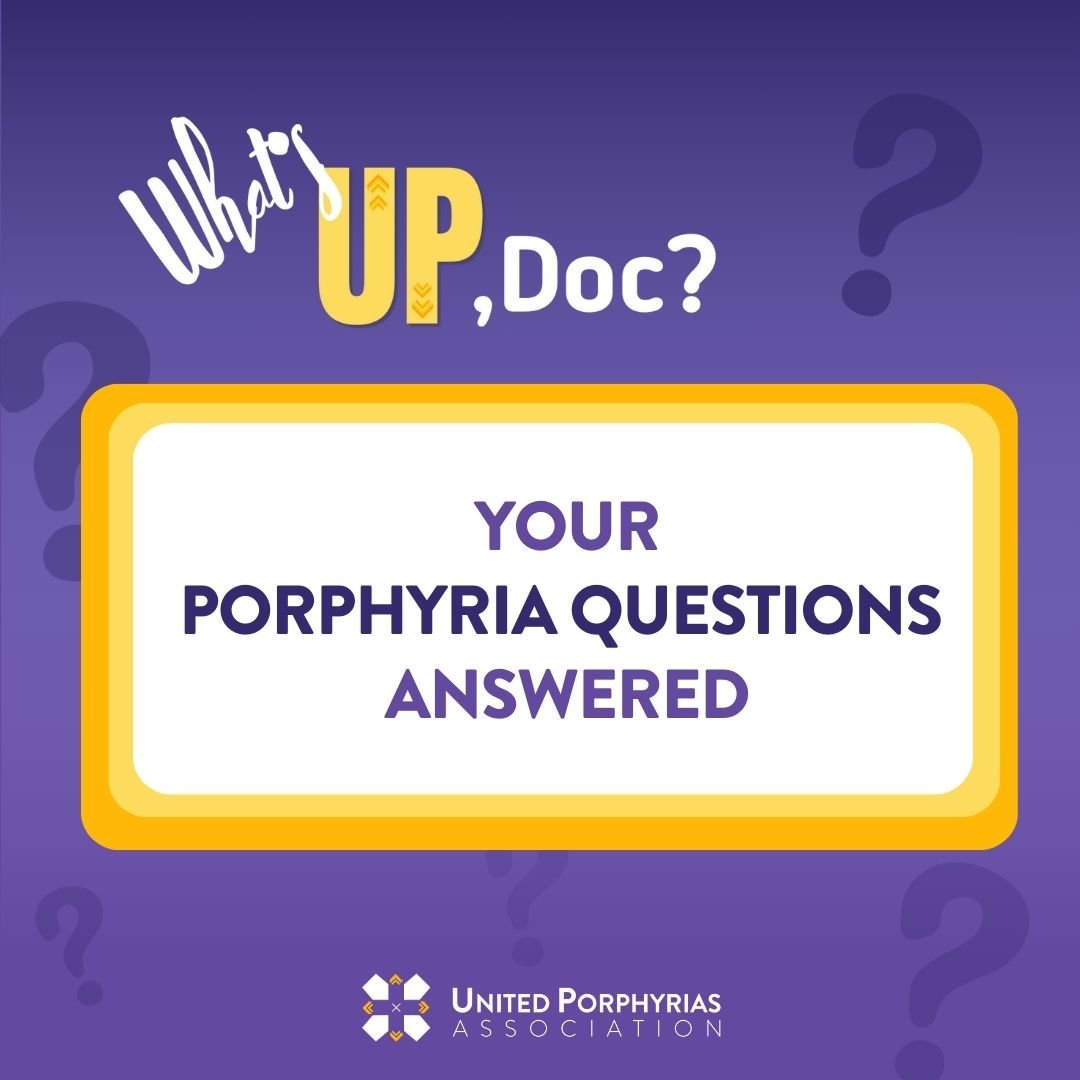Porphyria and Menopause
What's UP Doc? Is a regular column where we feature a patient question along with a response from a member of the UPA Scientific Advisory Board.
How will menopause affect my porphyria? Are estrogen treatments for menopause safe?
Today’s response comes from Dr. Karl Anderson of University of Texas Medical Branch in Galveston, TX. We received multiple questions about how menopause might affect several types of porphyria, so we asked Dr. Anderson to tackle them all.
Select your type of porphyria to see Dr. Anderson’s response!
-
It is common for women with acute hepatic porphyria to have fewer attacks and symptoms after menopause. This is because hormone increases associated with the menstrual cycle no longer occur after menopause. Increased levels of progesterone in the second half of the cycle are especially likely to cause attacks.
So, in general you can expect fewer porphyria symptoms after menopause. However, there are exceptions, and some women continue to have attacks or even have their first attack after menopause.
Estrogens are less likely than progesterone to contribute to attacks. However, estrogens are still often listed as unsafe. If estrogen replacement is needed after menopause, it is best if it is delivered through a skin patch instead of taken orally, because this reduces the amount delivered directly to the liver.
-
To the best of my knowledge, changes in hormones that come with menopause (or with puberty) don’t have any impact on EPP or XLP. Likewise, it is unlikely that menopause will have any impact- for better or for worse- on your porphyria. Excess porphyrins in these porphyrias come from the bone marrow rather than the liver, and progesterone and estrogens affect the liver but do not have the same effects on the bone marrow. Description text goes here
-
Menopause is unlikely to have an impact on PCT (see this What’s UP Doc? response on the topic).
Although PCT is an hepatic porphyria, the effects of hormones are quite different from AIP, VP and HCP. Oral estrogens are often a causative factor in women with PCT, while progesterone-related products are not. Estrogens given by skin patch are safer in PCT compared to oral estrogens, because exposure to the liver is less.
Thank you to Dr. Karl Anderson for this What's UP Doc? answer!
Do you have a question for a porphyria expert? Send it to info@porphyria.org.



